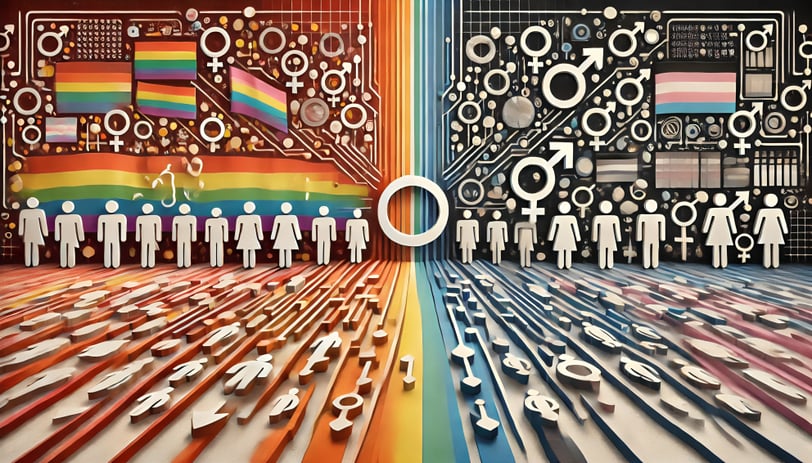The Spectrum of Gender Identity in the U.S. and Donald Trump's Binary Perspective
This article critically examines the diverse landscape of gender identities recognized in the United States, juxtaposed with former President Donald Trump's recent statements advocating for a binary understanding of gender.
EXPERT ANALYSIS
GeopoliticsTv Team
1/14/20252 min read


In contemporary American society, the understanding of gender has evolved beyond the traditional binary framework of male and female. Scholars, activists, and medical professionals recognize a spectrum of gender identities that reflect the complex interplay between biology, identity, culture, and personal experience. Resources such as MedicineNet have identified up to 72 distinct gender identities, including terms like agender, bigender, genderfluid, and more, each describing unique experiences of gender.
This expansive recognition aims to validate individual experiences and promote inclusivity. However, it has also sparked debates, particularly among conservative circles, about the implications for societal norms, legal definitions, and policy-making.
Former President Donald Trump has been vocal in his opposition to this broadened understanding of gender. In a speech at AmericaFest 2024 in Phoenix, he declared his intention to establish an official policy recognizing only two genders—male and female. He stated, "Under the Trump administration, it will be the official policy of the United States government that there are only two genders," and pledged to sign executive orders to enforce this stance.
Trump's position reflects a broader conservative viewpoint that views gender as a fixed, biological characteristic determined at birth. This perspective often challenges policies and practices that accommodate non-binary or transgender individuals, citing concerns over traditional values, religious beliefs, or the perceived societal impact of recognizing multiple gender identities.
Critics argue that such a binary approach disregards the lived experiences of many individuals and contradicts scientific understandings of gender as a complex interplay of biological, psychological, and social factors. Organizations like the American Civil Liberties Union (ACLU) have documented the potential harms of policies that deny the existence of non-binary and transgender identities, emphasizing the importance of legal protections for all gender identities.
The debate over gender recognition has tangible implications for various aspects of society, including healthcare, education, and civil rights. Policies that enforce a strict gender binary can lead to the exclusion of non-binary and transgender individuals from essential services, sports participation, and legal recognition, thereby perpetuating discrimination and marginalization.
In conclusion, while the recognition of a multitude of gender identities seeks to embrace the diversity of human experience, opposition from figures like Donald Trump highlights the ongoing societal tensions between progressive understandings of gender and traditional binary perspectives. Navigating this complex landscape requires a nuanced approach that considers individual rights, scientific insights, and cultural values.
